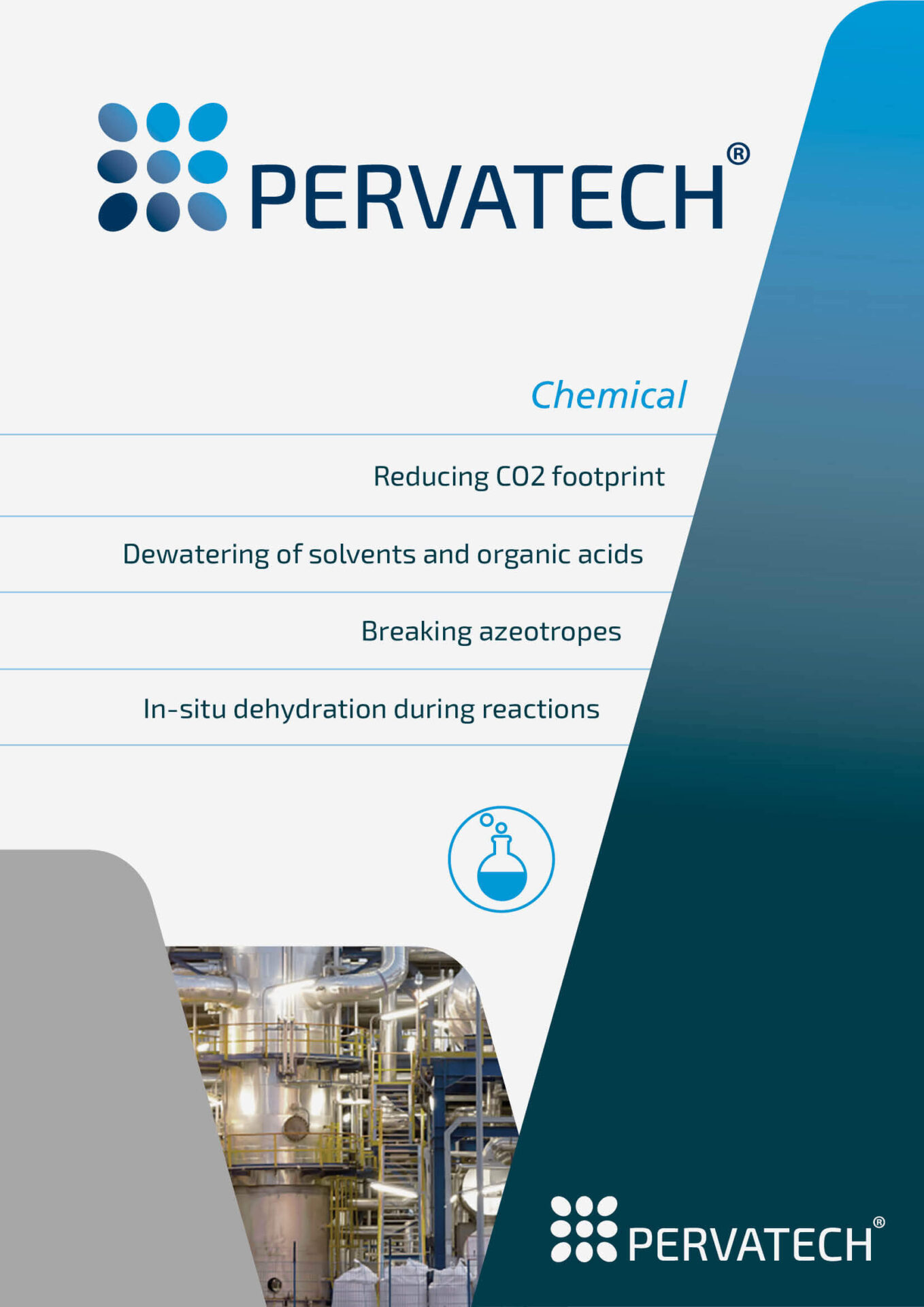Chemical industry
In chemical industry, distillation is a key separation technology. At azeotropic compositions, when volatility-based separation is no longer possible, pervaporation offers an alternative. Hydrophilic pervaporation membranes selectively remove polar (solvent) compounds such as water, whereas organophilic membranes selectively remove non-polar compounds. Hybrid combinations of distillation and pervaporation, each strong in their own fields, are great examples of process intensification: better separation at lower energy consumption and lower costs.
Moreover, membranes are able to control chemical reactions by selectively adding or removing chemical compounds. In-situ dewatering of condensation reactions with hydrophilic pervaporation membranes increases the process yield and efficiency. Reaction and separation combined – another example of process intensification.
With the examples shown above, pervaporation anticipates two important trends in industry: CO2 reduction, that is, energy savings in chemical processes, and circularity, that is, reuse of raw materials.
Typical pervaporation applications are:
- Dewatering of solvents (e.g. ethanol, IPA, THF, acetonitrile, MEK ethylacetate, NMP, etc.)
- Methanol / dimethyl carbonate (MeOH/DMC) separation
- Breaking azeotropes
- In-situ dehydration during reactions
- Debottlenecking of distillation processes
- Recovery of organics from aqueous fee
- Separating lower molecular weight solvents from higher molecular weight solvents
INQUIRY FORM
For any questions on the feasibility of your separation case, we advise to send our Inquiry Form to: info@pervatech.nl.
Download Inquiry Form
